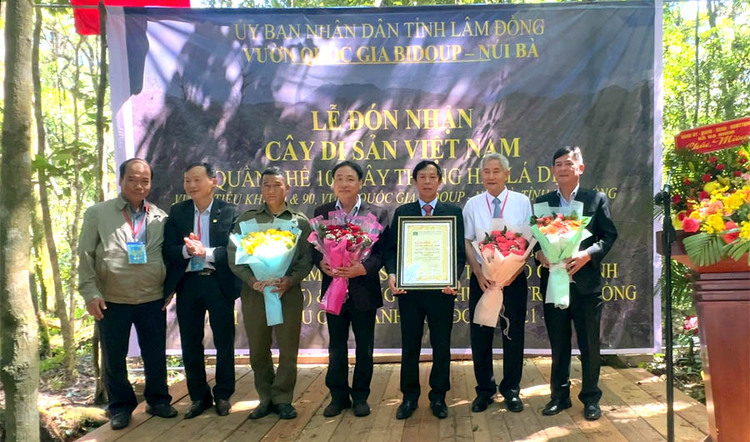A number of leading academic experts have voiced strong opposition to a flood-prevention proposal that calls for construction of a sea dyke connecting the coastal regions of Ba Ria-Vung Tau and Tien Giang provinces.
The tentatively named Go Cong-Vung Tau sea dyke, an idea initiated by Deputy Minister of Agriculture and Rural Development Prof Dao Xuan Hoc, has met with opposition for more than a year because of its environmental and economic impact.
Its main purpose, to prevent flooding in HCM City, cannot be realised, according to experts.
The dyke would have a length of 23 kilometres and extend from one point on the coastline near Vung Tau City to another point on the coastline off Go Cong District in the Cuu Long (Mekong) Delta province of Tien Giang.
The dyke would block the strait, which was created by two land cliffs in Vung Tau City and Go Cong District,as opposed to an administrative measure to settle traffic problems.
"The measure will directly charge vehicle owners and force them to sacrifice their own profit for the entire society," he told Nguoi lao dong (Labourer) newspaper.
Hung, however, is also worried about the fees burdening people, particularly when the transport ministry is creating other fee-collection plans.
For cars, numerous fees could cost them up to VND70 million (US$3,300) per year, he said. Under a draft plan to limit the use of personal vehicles from the ministry, cars of less than nine seats might be subject to a personal vehicle fee worth VND20 million-50 million each.
Nguyen Nam Phuong, owner of a seven-seater car from Ha Noi, said he might have to sell his car due to all the fees, including import, registration, number plates and parking.
"Due to the petrol price hike, our family uses the car only on the weekend while it is kept in a parking lot most weekdays. If road-use time is taken into account, ours is far less than taxis. Yet we have to pay an even higher fee than them, according to the details proposed by the ministry earlier," said Phuong.
Earlier, the ministry proposed fee rates of VND180,000-1.4 million ($9-70) a month for cars and VND80-150,000 a year for motorbikes.
Hung from the transportation association also said it would be an issue for motorbike owners, many of whom use that means of transportation to earn their living. More than 30 million motorbikes are in use nation-wide.
How to collect the fees remains controversial.
According to the ministry, it will issue a special device to calculate road-use time which can be the basis for proper fee collection.
Without the device, car owners have to pay monthly or yearly fees at registered centres while motorbike owners pay local authorities who are responsible for road maintenance in their areas.
Deputy general director of the ministry's Viet Nam Road Administration Nguyen Van Quyen admitted that it would be hard to implement, but the ministry hadn't come up with any better option.
Dr Khuat Viet Hung from the Ha Noi-based Transport University said he could not say yes to the road-use fees given their complexity. He said most other countries do it via petrol use.
He was also doubtful about the use of technology in collection, as it would raise the investment cost.
Hung also suggested that before fees are introduced, authorised bodies should indicate the scientific evidence that serves as the rationale. For example, how the fee application will lessen the road-use time, he said.
The ministry estimated to collect VND6 trillion ($286 million) for road maintenance funds in the first year. It will make up 80 per cent of the fund's requirement while the rest is from the State budget.
















